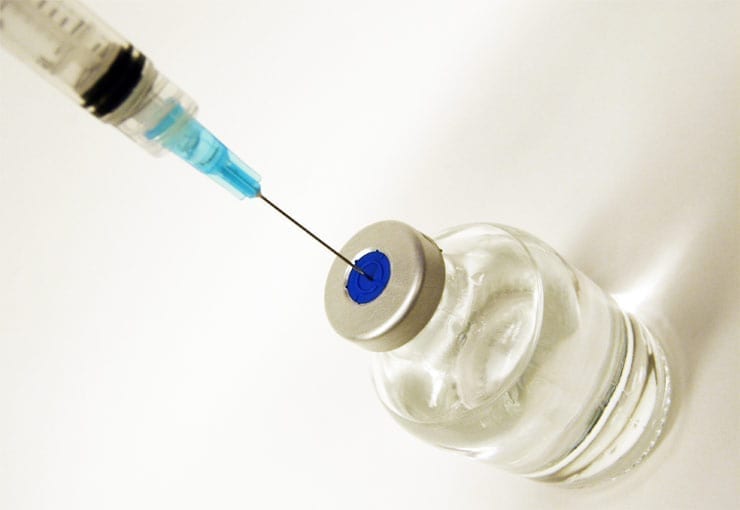The National Institute of Allergy and Infectious Diseases (NIAID), part of the National Institutes of Health, has awarded seven research contracts to discover and characterize new adjuvants, or substances formulated as part of vaccines to enhance their protective ability.
“The goal of this research is to identify novel adjuvant candidates that safely and selectively boost vaccine-induced immune responses,” said NIAID Director Anthony S. Fauci, M.D. “Such adjuvants could be used to improve current vaccines, extend the vaccine supply or enhance vaccine efficacy in people with immature or weakened immune systems, such as infants and the elderly.”
Only three adjuvants — alum, AS04 and AS03 — are components of vaccines approved by the U.S. Food and Drug Administration for human use. Alum, which is composed of aluminum salts, is included in many U.S.-licensed vaccines, including those that protect against hepatitis B and pneumococcal infections. AS04, a combination of alum and an immune-stimulating lipid (fat), is included in the vaccine Cervarix, which prevents infection with the two human papillomavirus types that cause most cervical cancers. The oil-in-water adjuvant AS03 is included in a vaccine for use in the event of an H5N1 bird flu epidemic.
NIAID adjuvant discovery contracts awarded in 2003 and 2009 identified adjuvants that trigger a small set of receptors of the innate, or inborn, immune system. The innate immune response helps shape adaptive, or acquired, immunity, which confers long-term protection from infection by specific pathogens. The new NIAID awards aim to expand the scope of adjuvant research by searching for any compound involved in the activation of the adaptive immune system.
Total funding for these contracts, which are accelerating progress toward the goals described in NIAID’s Strategic Plan for Research on Vaccine Adjuvants, could reach approximately $70 million over five years.
In the first stage of the research, scientists will use experimental and computer-based approaches to screen more than 1 million molecules and identify those capable of enhancing adaptive immune responses.
In the second stage, the investigators will determine how the most promising adjuvant candidates work. They will then use this knowledge to make structural changes to the molecules to improve their ability to safely enhance protective immune responses without causing undesirable side effects. Finally, scientists will test vaccines formulated with optimized adjuvant candidates for safety and efficacy in animal models.
The following institutions received the new contracts:
- University of California, San Diego, La Jolla. Dennis Carson, M.D., principal investigator
- Boston Children’s Hospital. Ofer Levy, M.D., Ph.D., principal investigator
- Vaxine PTY LTD, South Australia, Australia. Nikolai Petrovsky, Ph.D., principal investigator
- Corixa Corporation (now part of GlaxoSmithKline), Hamilton, Montana. Jay Evans, Ph.D., principal investigator
- Duke University, Durham, North Carolina. Herman Staats, Ph.D., principal investigator
- Oregon Health & Science University, Portland. Jay Nelson, Ph.D., principal investigator
- University of Kansas, Lawrence. Sunil David, M.D., Ph.D., principal investigator
“We expect that this research will expand the adjuvant pipeline and contribute to the development of new and improved vaccines against infectious diseases,” said Daniel Rotrosen, M.D., director of NIAID’s Division of Allergy, Immunology and Transplantation, which oversees the awards. “With this new round of awards, we have expanded the research scope of our program to compounds that indirectly and directly stimulate adaptive immunity.”
Source: NIH press release, adapted.


